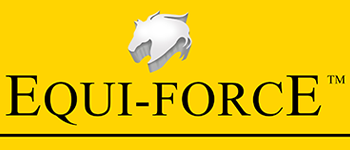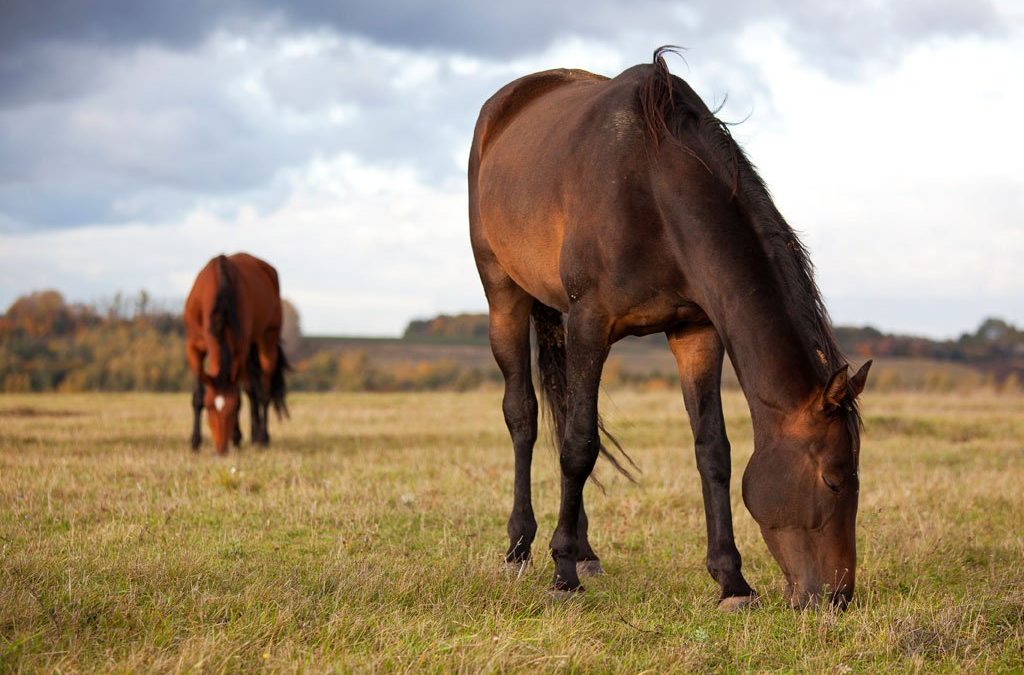One of the most frequently asked question from my clients is “Why does my horse want to eat dirt? Is he missing something in his diet?” Well, the question can be answered several ways, as there is not one particular reason why horses engage in this perfectly natural activity. Horses are supposed to eat a certain amount of dirt on a daily basis. Therefore, I will give several explanations as to why horses eat dirt from time to time and hopefully put to rest any fear an owner may have when they see a horse with its mouth full of soil, rocks and other extraneous materials found on the ground.
- Dirt is a natural part of the equine diet. It contains minerals in bio-available form that the horse needs for various metabolic functions. Some of the minerals, iron for example, are more utilizable from the soil than when added to feeds or stored in forages. Horses that are constantly stabled and deprived of minerals naturally found in dirt may develop deficiencies even when supplied with those minerals in processed feeds.
- Dirt also contains microbes that the horse’s digestive tract can benefit from. Some microbes are located in plant roots so the horse may dig through the dirt to get at the roots of these plants.
- Dirt contains water and salt which can both help a thirsty horse stay hydrated. However, it is always better to make sure horses are supplied with fresh drinking water and salt at all times.
- Horses that do not have access to dirt on a daily basis may gorge on it when it is suddenly available. Again, it is perfectly natural ingredient in the equine diet so allowing the horse access to dirt everyday is recommended.
- Dirt has coarse particles that will help naturally grind down the horses teeth. Horses kept in stalls do not get this added benefit of eating dirt and must have their teeth floated more often than those out on pasture.
- A horse with nothing to eat will eat dirt due to hunger and boredom. This is a very common cause of dirt consumption in horses. It is imperative that horses in dry lots or paddocked on sand be given forage on a continuous basis to avoid overconsumption of dirt due to hunger or boredom. Such a situation is dangerous as it can set up the digestive tract for impaction colic very quickly. Always have forage available when horses are stabled or paddocked with no grass.
- A horse with an upset stomach may seek out and eat dirt or clay. According to Dr. Christine King, “Clays in particular contain very absorbent particles which can bind up bacterial toxins, organic acids such as those produced by sugar fermentation, certain viruses, and other potentially harmful substances in the gut. The bound toxins are then harmlessly removed from the body in the manure”.
- Soil contains fiber from leaves, bark and stems and can provide bulk fiber to a horse that is deficient in structural fiber. Again, horses that are stabled or paddocked on dirt or sand must be given free access to forage to adequately supply the hindgut with enough fiber. Horses deficient in fiber will eat sawdust, shavings, straw, fences, stalls planks, trees and dirt or whatever they can find to satisfy this requirement.
So for the health of the horse, please allow some daily access to dirt. It’s healthy, nutritious and natural!


Great info thankfully it will help me understand the need for dirt